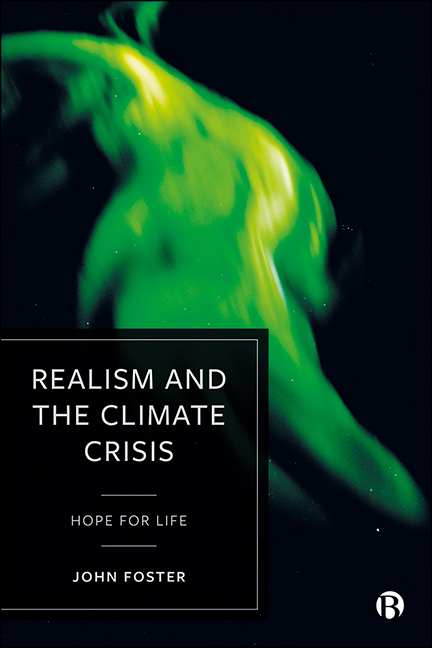Book contents
- Frontmatter
- Dedication
- Contents
- A Note on Notes
- Acknowledgements
- Introduction: Hope, Realism and the Climate Crisis
- 1 The Demands of Realism
- 2 Transformation?
- 3 Creating Possibility
- 4 Responsibility Beyond Morality
- 5 The Bounds of Utopia
- 6 Climate Crisis as Tragedy
- 7 On the Way to Revolution
- 8 The New Revolutionary Dynamic
- 9 The Vanguard of Hope
- Notes
- References
- Index
5 - The Bounds of Utopia
Published online by Cambridge University Press: 15 September 2022
- Frontmatter
- Dedication
- Contents
- A Note on Notes
- Acknowledgements
- Introduction: Hope, Realism and the Climate Crisis
- 1 The Demands of Realism
- 2 Transformation?
- 3 Creating Possibility
- 4 Responsibility Beyond Morality
- 5 The Bounds of Utopia
- 6 Climate Crisis as Tragedy
- 7 On the Way to Revolution
- 8 The New Revolutionary Dynamic
- 9 The Vanguard of Hope
- Notes
- References
- Index
Summary
So the realism of transformation is ambitious. If hope informed by it can envisage a rapid and dramatic shift in the perception by individuals of their agency and motivations, in relation to their whole Earth-systemic context, that shift could also by extension transform the pressures shaping action by groups and collectives all the way up to the nation state and the international order. This means we are to hope for nothing less than a new kind of movement for change, establishing itself with astonishing speed through all the new forms of connectivity now available – a movement of deliberate and emphatic individual acceptance of responsibility for the wider biospheric life which is now threatened. How such a movement might be brought sufficiently swiftly into being, through what activities of consciousness-raising and mobilization coupled with the impacts of which unignorably climate-driven disasters, is an open-ended matter. So are the expressive forms which it might take, and the drastic political changes which it will demand. Empirically, none of that is remotely credible. Practically, we have no option left but to hope against hope that it could yet happen. That means believing what the previous chapters have tried to set out the warrant for believing: that the hope which we must invest counter-empirically in bringing transformation about can genuinely create the possibility of our becoming the life-responsible agents of its happening.
Counter-empirical hope, however, remains hope: desire for a valued outcome under the sign of contingency. As such – the point from which our whole enquiry into its implications started – it must be directed at something which, while uncertain of achievement, is nevertheless in principle achievable, which means, something really (at some level) in prospect. That is, it must still, for all the life-depth of its impulsion, meet the condition of realism by pointing to real possibilities. But now, if we have recognized the power of human action spurred by hope to create possibility, what kind of requirement could that be? Haven't we presented ourselves with an allpurpose superpower to do anything whatsoever? The suspicion that we might be trying to do just that lurks, naturally enough, not far beneath our ongoing cultural reluctance to acknowledge what I have been calling the creativity of human action.
- Type
- Chapter
- Information
- Realism and the Climate CrisisHope for Life, pp. 84 - 101Publisher: Bristol University PressPrint publication year: 2022



